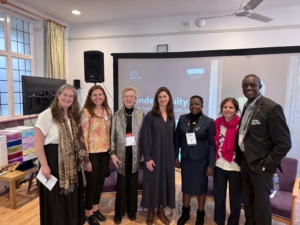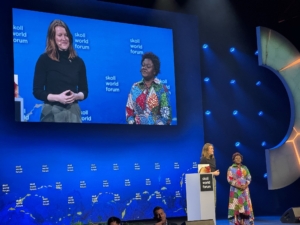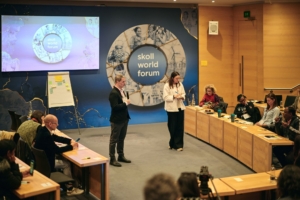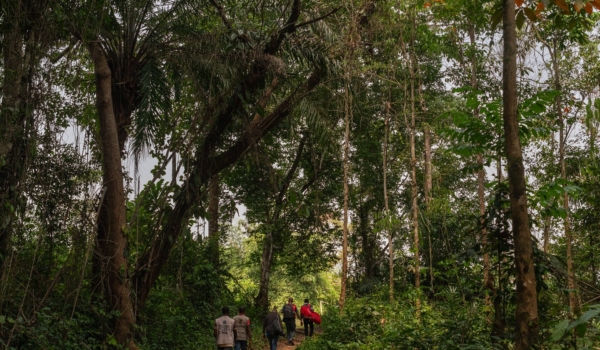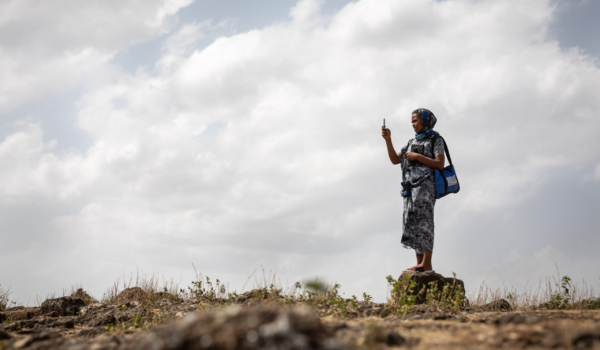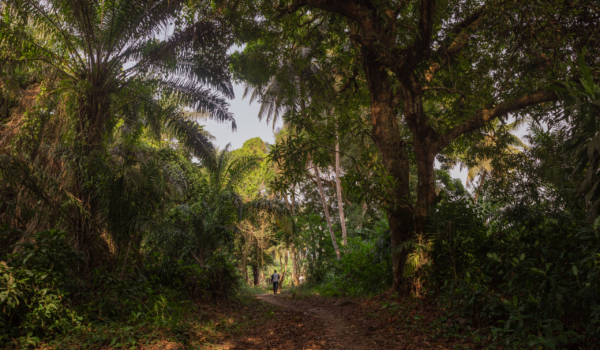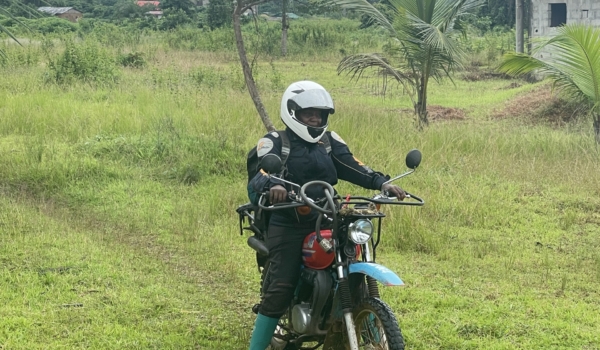Amidst challenging headwinds to the global health sector, the professional community health worker (proCHW) movement had a real burst of momentum at the 2025 Skoll World Forum.
Hosted annually by Skoll Foundation in Oxford, UK, the Skoll World Forum convenes doers and donors to collaborate on social innovation. And as Don Gipps, CEO of Skoll Foundation, said, “One of the best examples of social innovation is the community health worker model.” Here are three takeaways about community health workers from the 2025 Skoll World Forum:
To reach every patient, ensure women are supported as professional community health workers.
We co-hosted a sold-out side event with Integrate Health on investing in women community health workers, titled Gender Equity: A Core Component of Health for All. Moderated by Last Mile Health CEO Lisha McCormick, the event featured Mary Robinson, former President of Ireland and member of the Elders; Olivia Leland, founder and CEO of Co-Impact; Julius Mbeya, Co-CEO of Lwala Community Alliance; Millicent Anyango Miruka, a community health worker from Kenya; and Jennifer Schechter, co-founder and CEO of Integrate Health.
Women make up 70% of the community health workforce globally, but they are more likely to be unsupported, unpaid, and unsafe in their roles. “Community health workers matter,” Mary Robinson said. “The whole philosophy of global health is to leave no one behind. We can’t do that unless women are meaningfully represented.”
This is why Last Mile Health and Integrate Health teamed up to publish a framework for action with 16 recommendations for donors and doers to address the unique challenges women community health workers face throughout their careers. In the panel discussion, Julius Mbeya and Jennifer Schechter elevated implementation examples from the framework, including the impact of prioritizing training and experience over formal education in recruitment, as well as how to implement a conflict management system for gender-based violence to keep women safer in their work. Olivia Leland emphasized the need for continued investment in this work, underscoring its encouraging impact at this challenging moment: “I’ve been in a lot of conversations with funders this week who are feeling disillusioned and discouraged,” she said. “These stories are of hope. I hope we can bring them out of this room and keep sharing.”
Millicent Anyango Miruka ultimately reminded us why this work matters: she is passionate about serving her community, and deserves to be treated as a professional. “I believe in my work and am committed to my community, so I must go to my patients,” she said.
Collaboration is lifting the community health worker movement to new heights.
A milestone for our movement: Community Health Impact Coalition accepted the 2025 Skoll Award for Social Innovation!
In 2019, we co-founded Community Health Impact Coalition alongside Integrate Health, Living Goods, Muso, Partners In Health, and Possible. Our big idea? Collective action and collaboration could rapidly accelerate the movement to deploy salaried, skilled, supervised, and supplied community health workers. “We came together to build a world in which community health workers were no longer the health sector’s leading philanthropists,” recalled Madeleine Ballard, CEO of Community Health Impact Coalition.
Since then, we’ve made an incredible impact with more than 30 organizations joining forces to make professional community health workers the norm worldwide by changing guidelines, funding, and policy. But we’re not stopping there. Learn more about the work ahead in this Skoll Awardee video.
Keep betting on community health workers, long-term.
To a packed room, Last Mile Health’s President and Chief Program Officer James Nardella co-facilitated a delegate-led discussion with Rebecca Firth of Humanitarian OpenStreetMap Team on how to pitch, prepare for, manage, and sustain programs funded by big-bet philanthropy.
As James Nardella wrote in a recent SSIR article with Educate Girls, “For problems like the billions of people who lack access to even the most basic health care, […] there are no quick fixes. The task of supporting paid resources like community health workers […] will require a decades-long commitment. But we are up to the challenge. If we as doers are willing to make decades-long commitments to our constituents (children, mothers, families), then we need the same bold commitment from philanthropic donors.” Ultimately, our best bet for community health workers is a long bet, as it will lead to sustained change.

